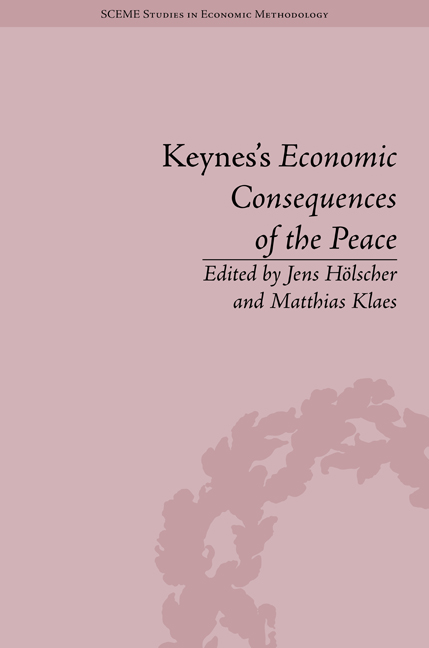Book contents
- Frontmatter
- CONTENTS
- List of Figures
- List of Contributors
- Introduction: Standing the Test of Time: Maynard Keynesas's Economic Consequences of the Peace, a Century On
- Part I The Consequences in their Time
- 1 Reparations, Orthodoxy and Fascism
- 2 What Literary Criticism Tells us about Keynes's Economic Consequences of the Peace
- 3 The Reception and Impact of Keynes's Economic Consequences of the Peace in Turkey
- 4 The Essays in Persuasion of John Maynard Keynes and their Relevance for the Economic Problems of Today
- Part II The Consequences Today
- Part III Keynes: A Play
- Notes
- Index
3 - The Reception and Impact of Keynes's Economic Consequences of the Peace in Turkey
from Part I - The Consequences in their Time
- Frontmatter
- CONTENTS
- List of Figures
- List of Contributors
- Introduction: Standing the Test of Time: Maynard Keynesas's Economic Consequences of the Peace, a Century On
- Part I The Consequences in their Time
- 1 Reparations, Orthodoxy and Fascism
- 2 What Literary Criticism Tells us about Keynes's Economic Consequences of the Peace
- 3 The Reception and Impact of Keynes's Economic Consequences of the Peace in Turkey
- 4 The Essays in Persuasion of John Maynard Keynes and their Relevance for the Economic Problems of Today
- Part II The Consequences Today
- Part III Keynes: A Play
- Notes
- Index
Summary
Introduction
At a time when speculations about the unfolding history of the twenty-first century are wide open, the history of the twentieth century in general, and of its first half in particular, remains a safe haven for more cautious historians who content themselves with stocktaking. The attraction of the latter is all the greater because it also serves as a point of departure for comparisons and contrasts if not for drawing lessons and making inferences. There exist two camps: On the one side, there are those who give greater weight to the role of agency in the making of history. On the other side, there are those who give priority to structural factors which determine the course of things over the long term. In general, those who are engaged in politics and policymaking tend to emphasize how right choices can make a great difference. They are contested by those who insist that the long-term trajectory of events does not shift significantly over time. In any case, it is difficult to attribute outcomes to particular policy choices. Historians as well as some social scientists insist that reality is far more complex and multi-faceted to lend itself to simple linear cause-and-effect interpretations. On the contrary, reality proceeds with contingencies in the place of causalities in a world plagued with uncertainties.
- Type
- Chapter
- Information
- Keynes's Economic Consequences of the PeaceA Reappraisal, pp. 63 - 82Publisher: Pickering & ChattoFirst published in: 2014

